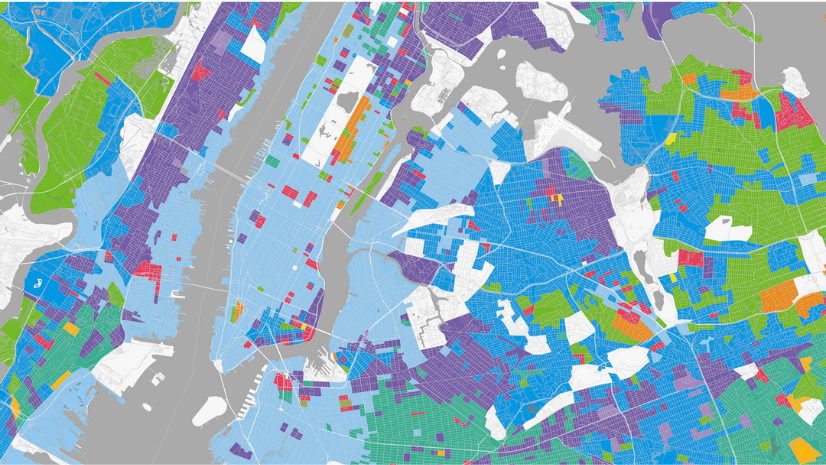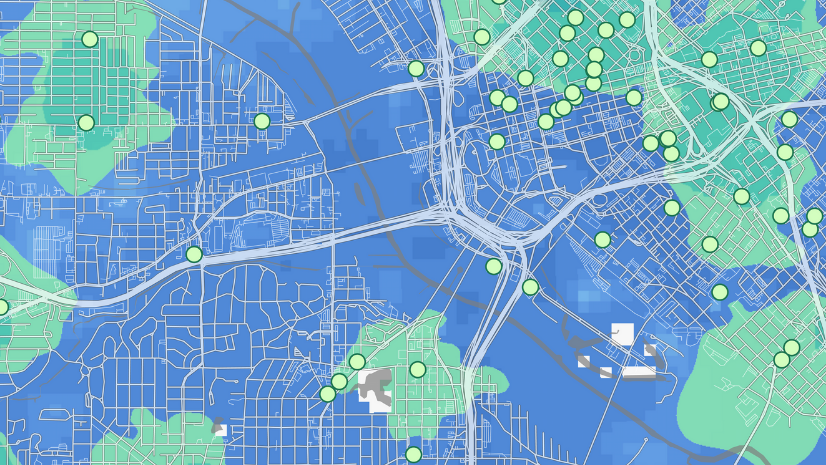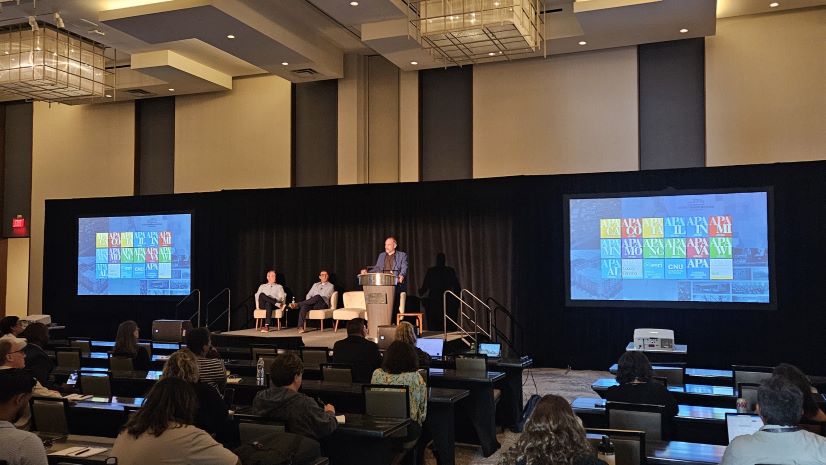Success in the commercial real estate world requires more than just hard work; agents, property assessors, and portfolio managers must be able to tell compelling stories about the properties in their portfolios. Regardless of whom they are representing—landlords, tenants, or investors—real estate professionals have to help their clients envision the real value of a site, facility, or potential store location. Success means having the confidence to make decisions about properties, quickly finding the best sites in a market, and accurately forecasting a location’s potential based on hyperlocal market conditions.
To differentiate themselves from their competition, real estate professionals must demonstrate to their clients that they know the markets, neighborhood by neighborhood, site by site.
This level of market intelligence requires access to precise location data, geocentric analytics, and visualization tools. Access to these tools and data can be difficult, especially for independent brokers or those working for smaller firms. The good news is that there is an organization for commercial real estate professionals that lets them access Esri’s ArcGIS tools using Site To Do Business. That organization is the CCIM Institute.
Helping Clients Find New Opportunities
How does membership in CCIM help commercial real estate professionals enable their clients to find opportunities in crowded markets?
Esri’s industry-leading location analytics provides tools and data that enable realtors to offer their clients precise, local information about a site’s potential. Using interactive maps and easy-to-understand infographics accessed through Site To Do Business, CCIM members can create compelling analyses and help their clients quickly understand a site’s potential. They can use these tools to score multiple locations, based on any number of variables, to help ensure that clients’ real estate investments will deliver the best returns. And they can create professional-grade marketing materials with infographics and maps that engage potential buyers, tenants, and investors.
In one example, a chain of franchise hardware stores wanted to help a potential franchisee find a location for a new store in a crowded suburban market. Using ArcGIS tools through Site To Do Business, the company used maps to show how consumers moved in and around a market. The company could show the franchisee where their competition was as well as where their potential best customers live and work. By adding consumer behavioral and spending data for categories like hardware and home improvement, the company showed its client where the market potential was most favorable for the new business.
The franchisee quickly narrowed down neighborhoods and shopping centers that would be best suited for a new location. The franchisee also understood how traffic throughout the day impacted each site and which ones had better access to the company’s supply chain network. Armed with this data, the franchisee could decide on a location quickly and be confident that their broker had provided them with the best information possible to support their investment decision.
Speed Is Life
The best locations move fast, even during downtimes. Tenants and landlords must move quickly and decisively to seize new opportunities. In commercial real estate, this often involves assessing multiple opportunities quickly. CCIM members can leverage ArcGIS to bring together data variables important to their clients and use that data to quickly score potential locations based on success metrics unique to their client’s needs. Through Site To Do Business, CCIM members have access to thousands of datasets, including everything from Esri Tapestry Segmentation data—which describes customer segments based on lifestyle, financial, and demographic data—to economic data organized by business segment using US Census Bureau and North American Cartographic Information Society (NACIS) codes.
CCIM members can help their clients assess and rank multiple locations at once, allowing them to quickly rule out the least advantageous sites and focus only on the best. CCIM members can provide ongoing assessments for investor clients about how their portfolios are performing by market. CCIM members can understand where markets are changing and how those changes will impact their client’s investments.

Getting Involved
Site To Do Business is available to all CCIM members. Powered by Esri’s ArcGIS, it enables CCIM members to research, analyze, and share data and insights about any property or location they choose. Using intuitive infographics and easy-to-understand maps, real estate professionals can tell the story about properties to attract buyers or tenants. They can help their buyers find new locations by quickly identifying the best sites for a new facility or evaluating proposed sites to understand where a new business might be most successful.
In addition to access to ArcGIS, CCIM provides its membership with a host of opportunities for continuing education through classes and seminars. Members can network with other professionals, solicit advice from industry professionals, and get involved with local CCIM groups. These groups help members get together to share ideas and connect with sellers, landlords, buyers, and tenants.
Learn more about how real estate professionals use ArcGIS.
To learn more about CCIM Institute and how to get involved with a local CCIM chapter, visit CCIM.com.




